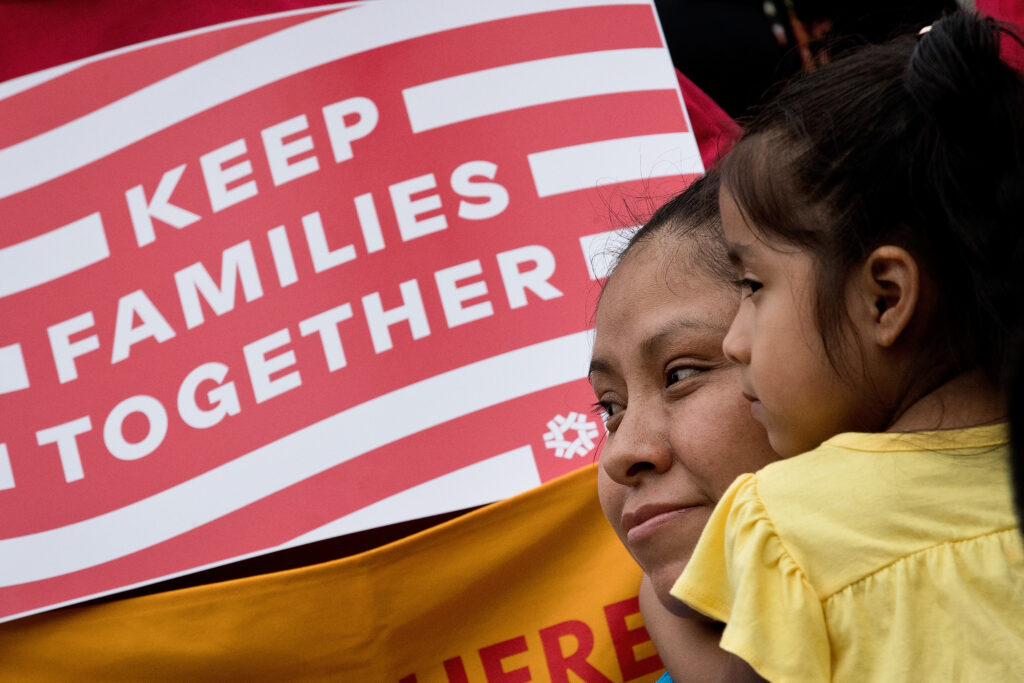In a significant policy shift, the Biden Administration has announced an expansion of the Parole-in-Place (PIP) program, aiming to provide crucial support to mixed-status families. This initiative reflects a commitment to preserving family unity and addressing some of the complex bureaucratic hurdles faced by undocumented immigrants with U.S. citizen or lawful permanent resident family members.
• Understanding Parole-in-Place
Parole-in-Place is a discretionary immigration policy that allows certain undocumented individuals to remain in the United States temporarily. Traditionally, this program has been limited in scope, often focusing on military families. The policy grants parole to eligible individuals, allowing them to adjust their status without leaving the country, which can be a significant advantage in avoiding the legal risks and emotional strain associated with deportation.
• Expanding the Scope: Who Benefits?
The recent announcement marks a substantial expansion of PIP, extending its benefits to a broader range of mixed-status families. Here’s how:
- Eligibility for More Families: Previously, PIP was primarily available to family members of active-duty military personnel, veterans, and certain reservists. The expansion includes families with U.S. citizen children, spouses, and parents, thereby protecting many mixed-status families from the threat of separation.
- Reducing Bureaucratic Hurdles: One of the critical advantages of PIP is that it allows eligible individuals to adjust their immigration status without leaving the United States. This change is particularly important because departing the country can trigger a bar on re-entry, which is a major bureaucratic trap for many immigrants. By staying in the country, families can navigate the immigration process more smoothly and with less fear of legal repercussions.
- Promoting Family Unity: The core principle of this expansion is to keep families together. The stress and uncertainty faced by mixed-status families can be overwhelming. With the new provisions, more families can avoid the heartbreaking experience of separation, providing emotional and financial stability to U.S. citizens and lawful permanent residents with undocumented loved ones.
• Implementation and Impact
The implementation of this expanded PIP program is expected to involve a streamlined application process. Applicants must demonstrate their eligibility, including proof of familial relationships, U.S. citizenship or lawful permanent resident status of family members, and other pertinent details. Immigration officials will evaluate applications case-by-case, ensuring the policy benefits those who genuinely need it.
The impact of this policy shift is profound. By reducing the risk of family separation and the associated legal pitfalls, the Biden Administration is taking a humane approach to immigration reform. Mixed-status families will have greater peace of mind, knowing they have a legal avenue to remain together while pursuing lawful immigration status.
• Addressing Criticisms and Moving Forward
While the expansion of PIP is a positive step, it is not without its critics. Some argue that it may encourage illegal immigration or place additional burdens on immigration enforcement agencies. However, the administration’s stance is clear: the focus is on humanitarian relief and practical solutions for families already deeply integrated into American society.
Moving forward, it will be essential for advocacy groups, legal experts, and policymakers to monitor the implementation of this policy. Ensuring the expanded PIP program is accessible, transparent, and effectively managed will be crucial to its success. Additionally, continued efforts towards comprehensive immigration reform will be necessary to address the broader challenges within the U.S. immigration system.
This policy provides a lifeline to many who fear separation and legal uncertainty by prioritizing family unity and reducing bureaucratic obstacles. As the program unfolds, it promises to foster a more inclusive and compassionate approach to immigration in the United States, ultimately reflecting the nation’s core values of family and fairness.


